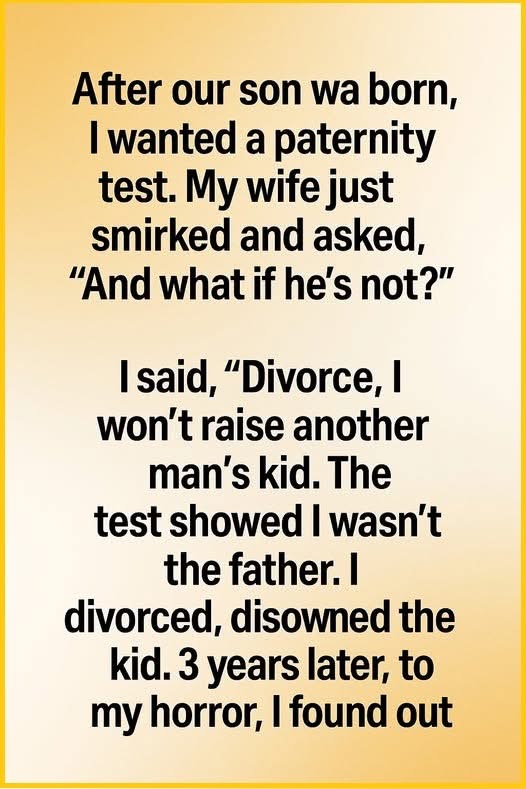When our son was born, I thought I was being cautious, responsible even. A small seed of doubt — one I never admitted aloud — kept growing until I finally demanded a paternity test. My wife didn’t cry or argue; she simply looked at me with a stunned expression and quietly asked, “And what if you’re wrong?” I answered with certainty I mistook for strength: “If he isn’t mine, I’m leaving.” I mistook her silence for guilt and her attempt to smile through hurt as arrogance. When the results came back saying I wasn’t the father, I believed them without question. I walked out. Papers, lawyers, final words — and I convinced myself I was doing the right thing.
Three years passed. I built a routine, tried to bury the ache, and told myself I had escaped humiliation. Then one afternoon, I unexpectedly ran into a longtime family friend. Instead of greeting me warmly, he looked at me with disappointment.
He had known my wife since childhood, and when I told him the reason I left, his expression shifted from confusion to sadness. “She never betrayed you,” he said softly. “That look you saw wasn’t guilt. It was heartbreak that you doubted her.” He also told me something else — a horrifying possibility — that test results can be wrong, and in rare cases, they are.

Leave a Reply